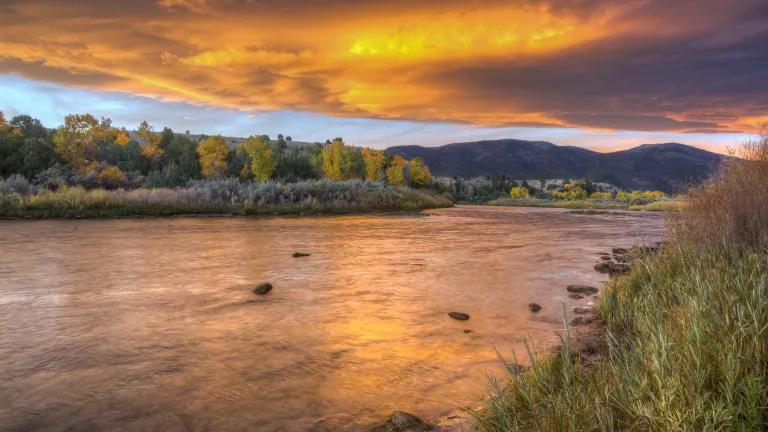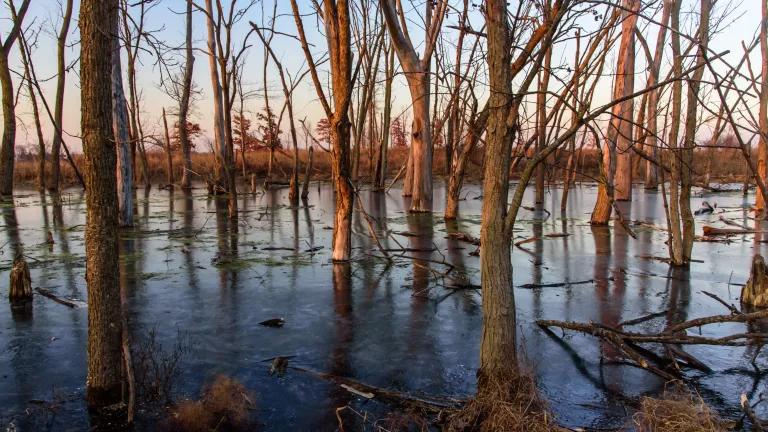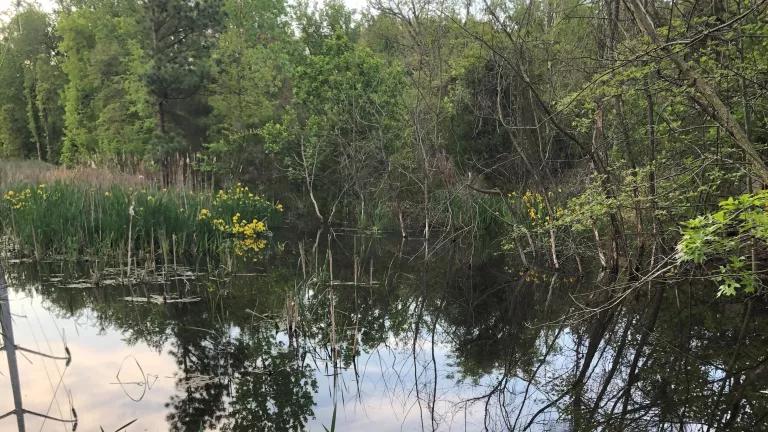Today, President-Elect Donald Trump’s nominee to head the Environmental Protection Agency, Oklahoma Attorney General Scott Pruitt, will appear before the Senate Environment and Public Works Committee, which will consider his nomination.
I read his opening statement, and it is a masterwork—he’s clearly a clever lawyer. If one hadn’t spent a lot of time reading up on his record (which I have had the displeasure of doing), it would be easy to think that he’s a reasonable guy with real respect for the agency he’s been nominated to lead. In truth, however, he is a dangerously radical opponent of EPA’s mission and of national environmental and health safeguards.
Here are a few narratives that Mr. Pruitt weaves through his statement, and how they hold up against his own prior statements and/or the facts.
Story #1: Mr. Pruitt describes EPA employees as "dedicated public servants" who have "devoted their careers to helping realize [the] shared goal" of ensuring "our future generations inherit a better and healthier environment."
This newfound respect for EPA staff flies in the face of his official website’s claim that he is “a leading advocate against the EPA’s activist agenda,” as well as statements in which he claimed EPA was waging a “war on coal,” or that it “abuses its regulatory power in states that have interests in energy, farming and ranching.”
It also makes one wonder, in light of his decision to shutter the Attorney General’s environmental enforcement unit in Oklahoma, how he will value the service of the EPA enforcement staff.
Story #2: Mr. Pruitt notes that EPA has a "vital function" in ensuring interstate "shared resources" are protected.
That’s literally the least EPA can do. But, under the Constitution, federal pollution control authority also properly includes intrastate activity that, in the aggregate, impacts interstate commerce. Intrastate pollution of land, water, and air easily satisfies this test.
Moreover, Mr. Pruitt fought even interstate efforts to control pollution, such as the lawsuit he joined attacking the EPA-led cleanup plan for the Chesapeake Bay watershed.
Story #3: Mr. Pruitt says that “clean air and water and a healthy environment are essential to the American way of life and key to our economic success and competitiveness.”
By contrast, he previously complained that “states are not, and should not be used as, a vessel to carry out the misguided visions of bureaucrats in Washington, who often seem to have little regard for how their actions negatively impact the economy and private property rights.”
Story #4: He claims that EPA is power-mad, and invents legal authority Congress didn’t intend the agency to have. Specifically, Mr. Pruitt says that EPA has become "dissatisfied with the tools Congress has given it ... and bootstrapped its own powers and tools through rulemaking," but then "the courts suspended most of these rules after years of delay".
In fact, of the nearly two dozen environmental cases we’ve identified in which Oklahoma was a litigant (of which about half have so far been litigated to conclusion, i.e., either a decision on the merits or a dismissal), only one was fully resolved in Oklahoma’s favor, and that was a case in which Oklahoma was on the same side as the federal government.
Story #5: Mr. Pruitt claims that states must be "frontline environmental implementers," and not strong-armed by EPA "into effectuating EPA policies."
In truth, in our experience EPA routinely bends over backwards in deference to state implementation, often to a fault. A prime example is EPA’s repeated failure to limit nitrogen and phosphorus pollution that fuels algae outbreaks. Likewise, although EPA can withdraw authority from states to run their water pollution permit programs if they fail to implement the Clean Water Act, and although states commonly issue under-protective permits, EPA has not exercised this authority.
Story #6: Mr. Pruitt implies that EPA, in the Obama administration, environmental safeguards have been adopted without a robust public process. He says: "I am committed to ensuring EPA's decisions are conducted through open processes that take into account the full range of views of the American people, including the economic consequences on any regulation."
In fact, EPA’s rulemaking in the last many years has been extremely—and appropriately—solicitous of public input. The agency’s actions included inclusive and extensive comment opportunities, with detailed analyses of economic impacts. Also, the suggestion that EPA rules are having significant harmful impacts on the economy is unfounded; to the contrary, though air and water safeguards have been strengthened since Congress first adopted landmark legislation like the Clean Air Act and the Clean Water Act, the American economy has grown significantly.
Story #7: Mr. Pruitt claims that ordinary Americans "fear the EPA".
In fact, recent polling shows Americans—including people who voted for the President-Elect—actually want strengthened safeguards. Specifically, 55% of Trump voters want to uphold or strengthen current climate change policies; 84% of Trump voters want the same or more federal regulations on drinking water; and 78% of Trump voters want the same or more federal regulations on air pollution.




